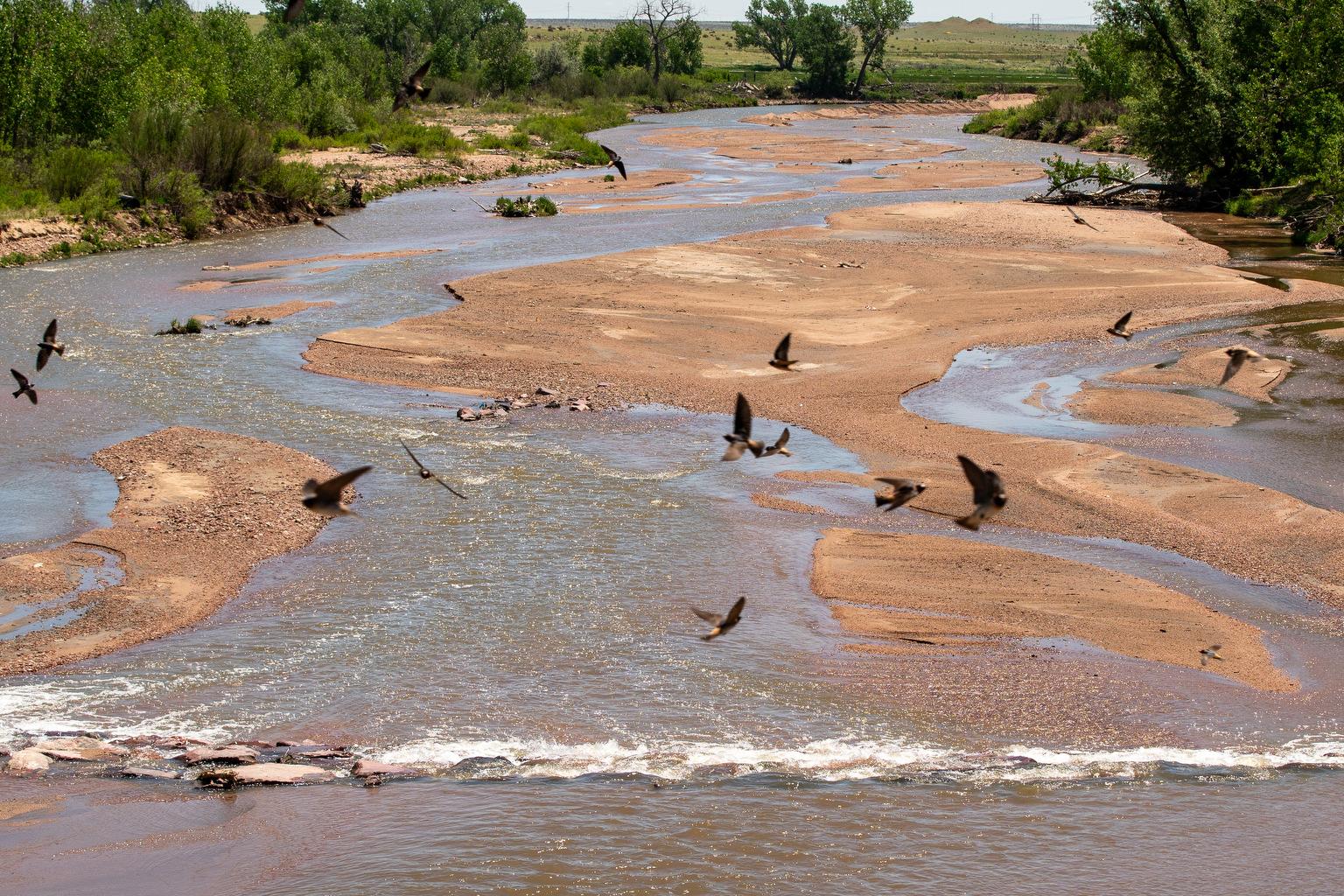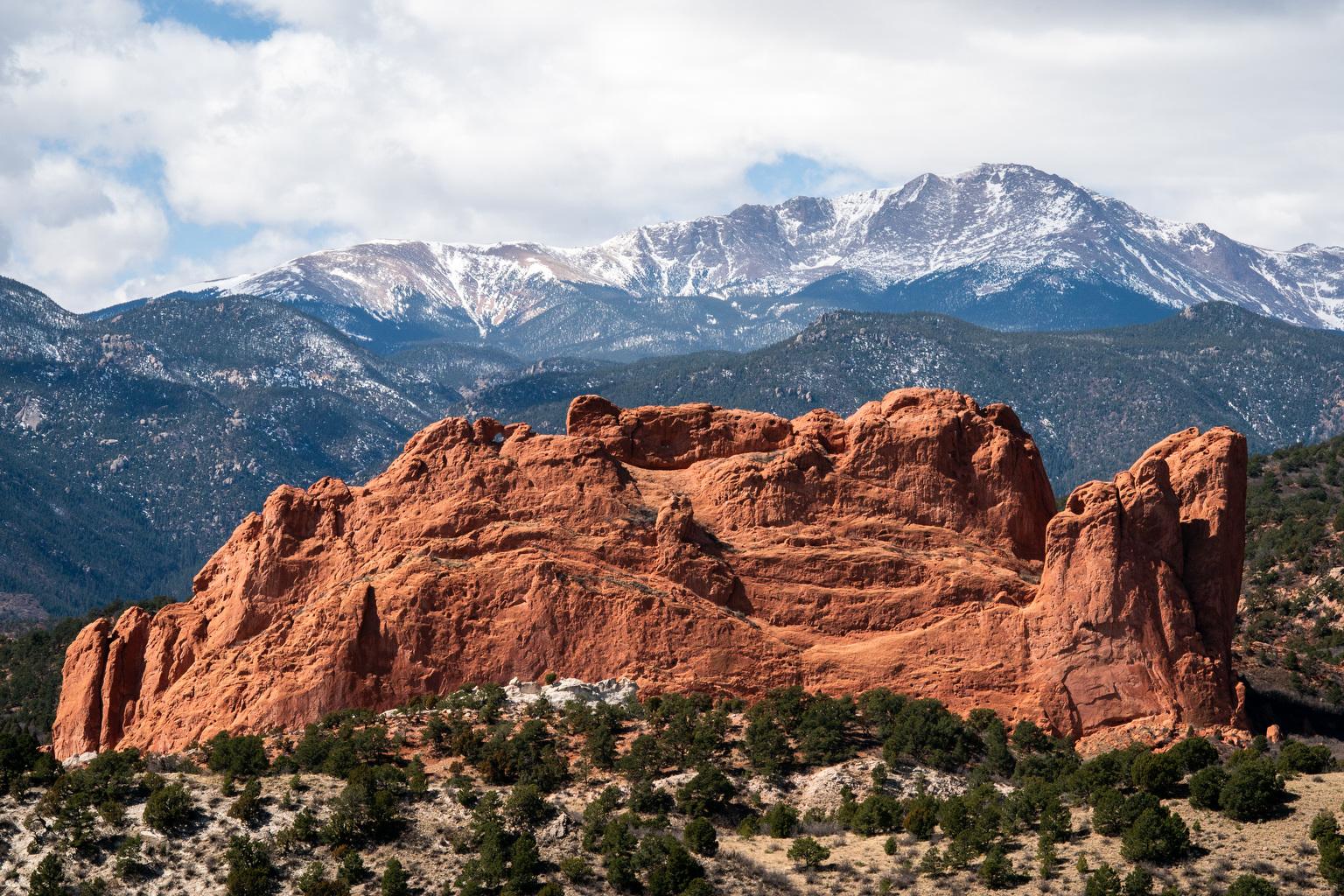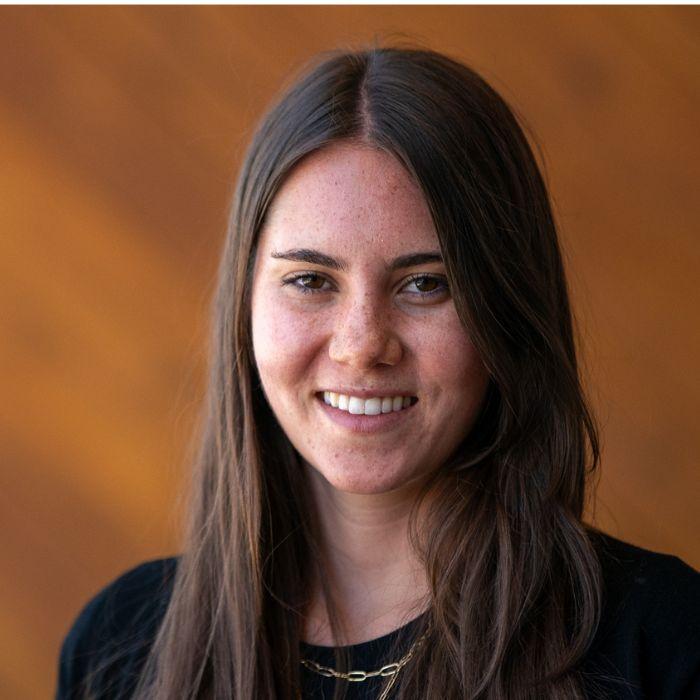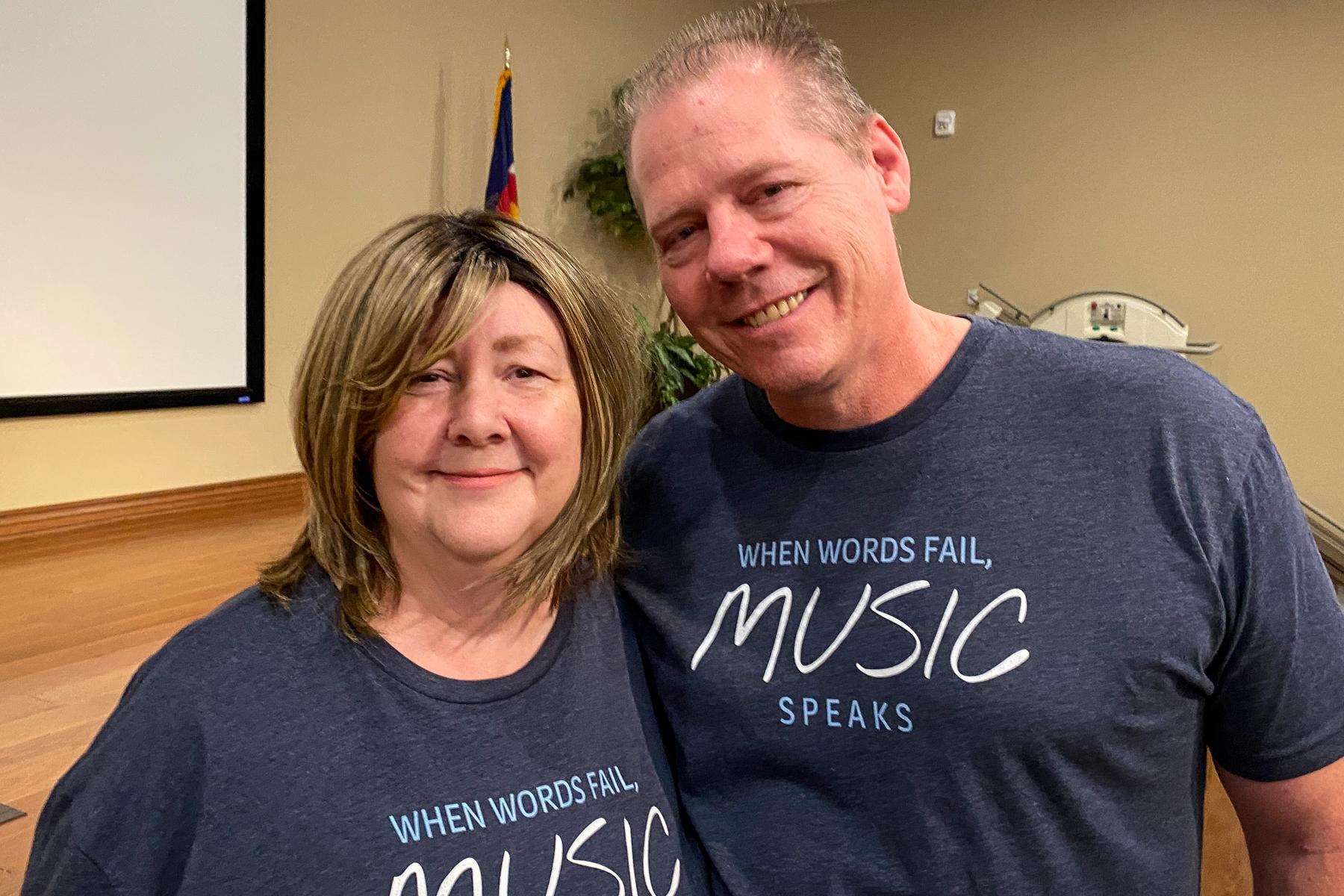
Things were going well for Shannon King in March 2017. The Brighton resident was then 51, and busy, working as a paralegal.
“It was the best job I ever had,” she said.
Then her body started doing strange things. Her husband, Mark, noticed.
“She'd hold a cup and then her cup would slowly tip over,” he said.
Those were the first signs of a stroke that indelibly changed Shannon’s life.
“I never went back to that work, because my speech is kind of off,” she said.
Besides the speech struggles, Shannon had weakness on her right side.
“I was just crying all the time,” she said.
It was a speech therapist who suggested to King to sing. He asked her to just sing “Mary Had a Little Lamb.”
Which she did, clearly and without a struggle.
“And I belted that out. It's crazy. I couldn't even speak,” Shannon said, still marveling that it was easier for her to sing than speak.
That was the start of a long rehabilitative journey, helped along by song, said Mark.
“Once we started singing then the vocabulary started kind of coming back, and we would have her reading the menu and stuff like that,” he said, “and then we’d sing little songs at night.”
Fast forward five years to today.
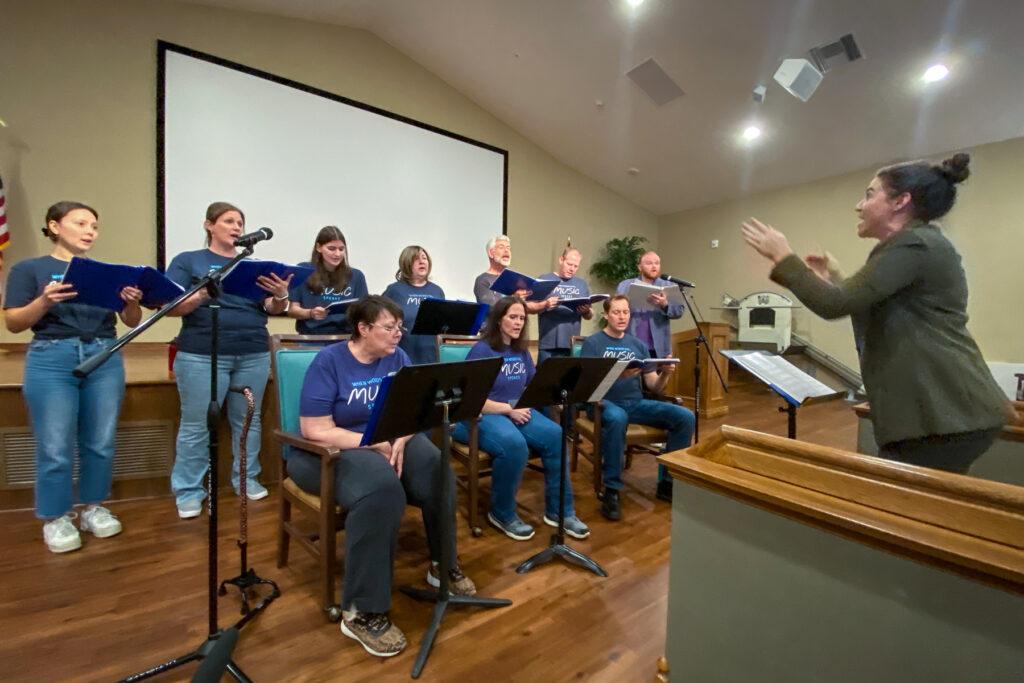
In front of an audience, with a piano accompaniment, Shannon King is part of a choir belting out the Beatles to enthusiastic residents of Skypointe Retirement Resort, a retirement home in Littleton.
“All you need is love! All you need is love! All you need is love, love…” they sing, smiles on their faces.
Both King and her husband, Mark, are now members of a group called the Rocky Mountain Aphasia Chorale, a choir for stroke survivors and supporters.
On this Saturday, the group makes their way through some greatest hits of the Beatles and finishes with a pair of crowd-pleasers: John Denver’s “Rocky Mountain High” and “Take Me Home Country Roads.”
“Aphasia is a language disorder,” said Sarah Thompson, CEO of a nonprofit called Rehabilitative Rhythms, which helps survivors of stroke and brain injury and runs the choir. “There are many different types of aphasia. It can affect writing, it can affect reading.”
The actor Bruce Willis was diagnosed with it earlier this year.
People who have had a stroke on the left side of their brain, or non-fluent aphasia, struggle to get words out. But there is a workaround, according to Thompson.
“Melody is processed in the right side of the brain and gives us a door into accessing words through singing,” she said.
Many stroke survivors like Shannon King, some other choir members and others with aphasia “can only speak one or two words after their stroke,” said Thompson, “but immediately can sing a song with a hundred words in it. It's quite a remarkable difference.”
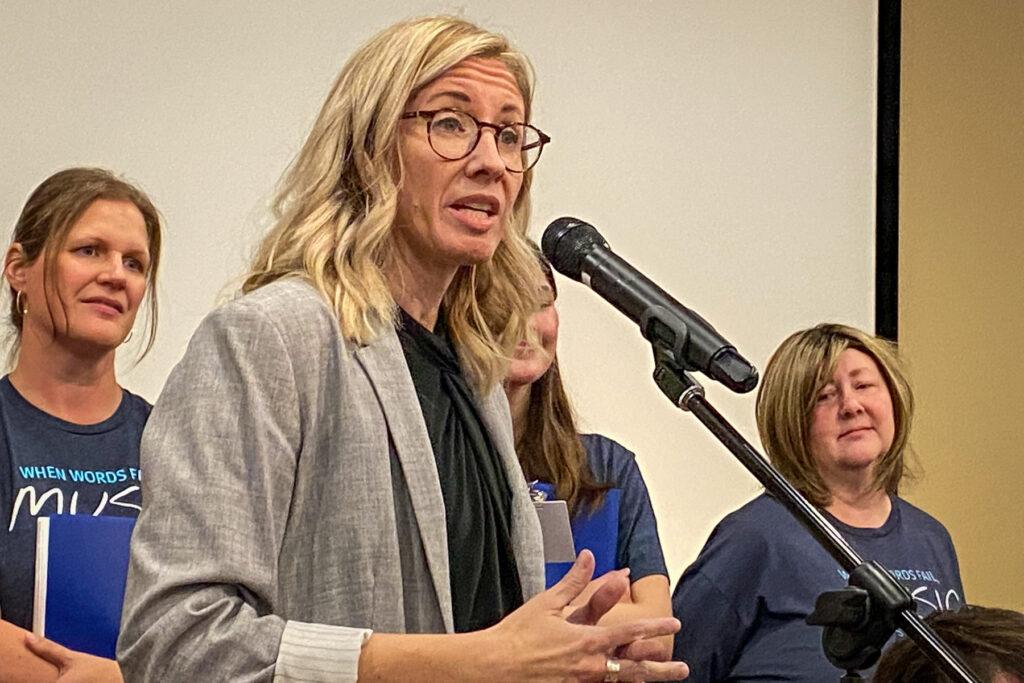
Rebecca Stewart, a board-certified music therapist and former director of the choir, said music is uniquely processed and perceived in our brains. Because of that, it can provide a detour to help stroke survivors struggling to communicate.
“It's pretty amazing,” Stewart said. A stroke may block a pathway in the brain for speaking but a different one for singing remains. “That skill can be preserved and then also utilized in order to rehab the speech and kind of build a detour, if you will, in that neurological pathway.”
But insurance often doesn’t cover music therapy, and many may not be able to find a provider in their area.
“Funding is a huge barrier,” Stewart said. “There's really not a ton of funding for anything post stroke, post outpatient therapy. You kind of just fall off a cliff, insurance-wise.”
That means that King’s group is rare. The Rocky Mountain Aphasia Chorale is one of only five aphasia choirs in the country. It’s the only one in the western part of the U.S., according to Thompson.
“I think it's very therapeutic for a lot of these people. It's just the frustration of not being able to communicate otherwise without using music,” said Grace Lichwalla, a junior who sings in the school choir at Grand View High.

